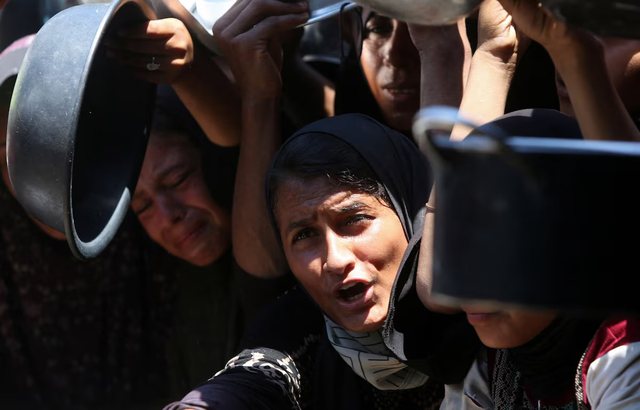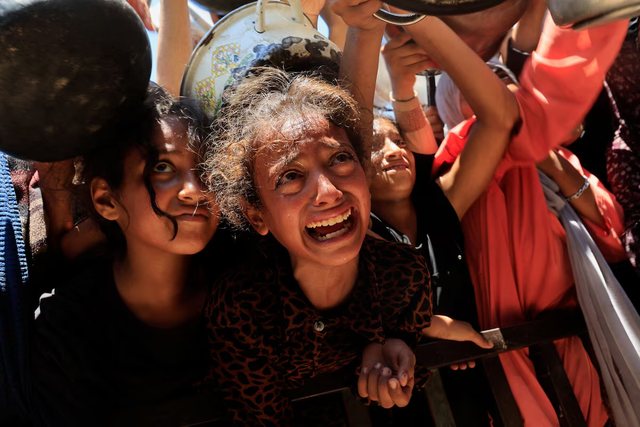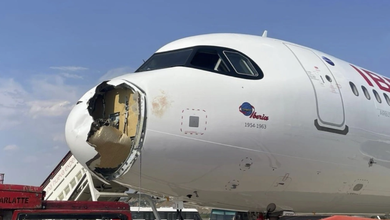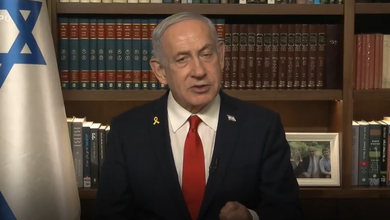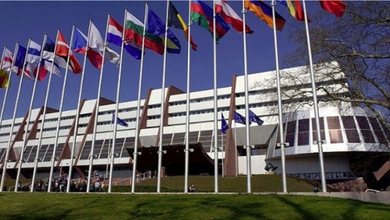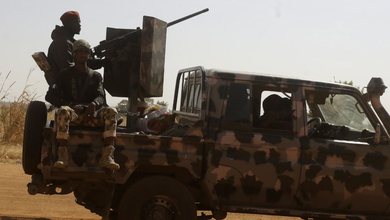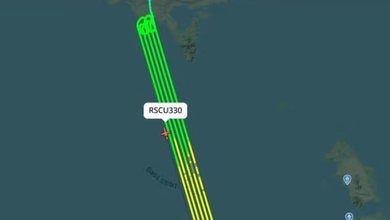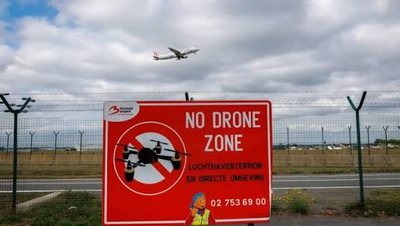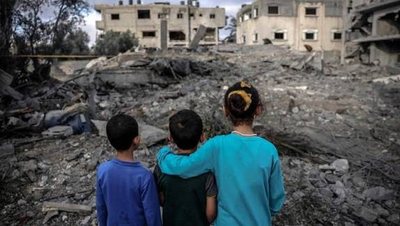At least 40 people were killed on Monday by Israeli fire and airstrikes in the Gaza Strip, including 10 who were trying to receive aid, according to local health authorities, while five others died of starvation - a worrying indicator of the deepening humanitarian crisis.
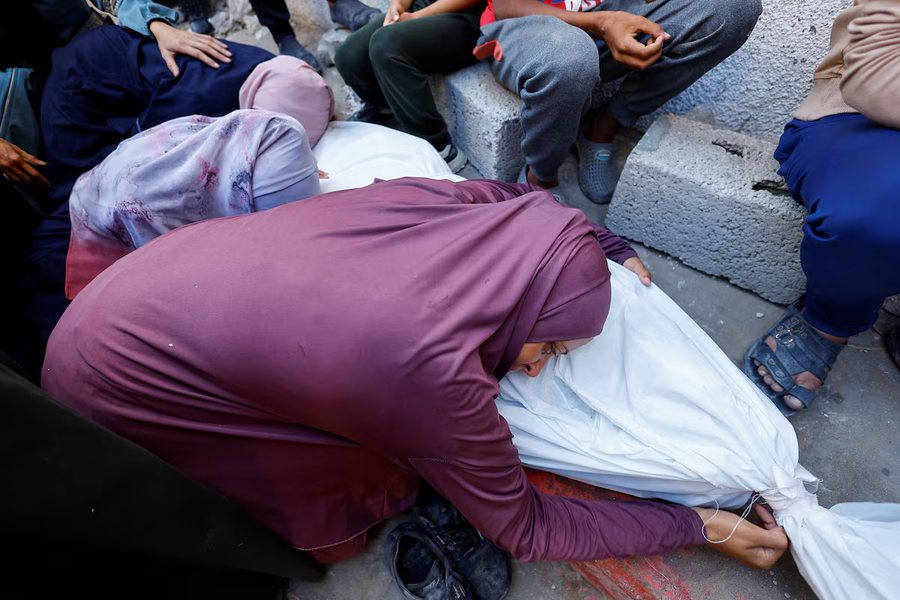
According to doctors on the ground, the casualties were recorded in two separate incidents near Gaza Humanitarian Foundation (GHF) aid distribution points, in the central and southern parts of the territory. The UN has reported that over 1,000 civilians have been killed since the start of GHF operations in May 2025, most of them by Israeli forces shooting near aid areas.
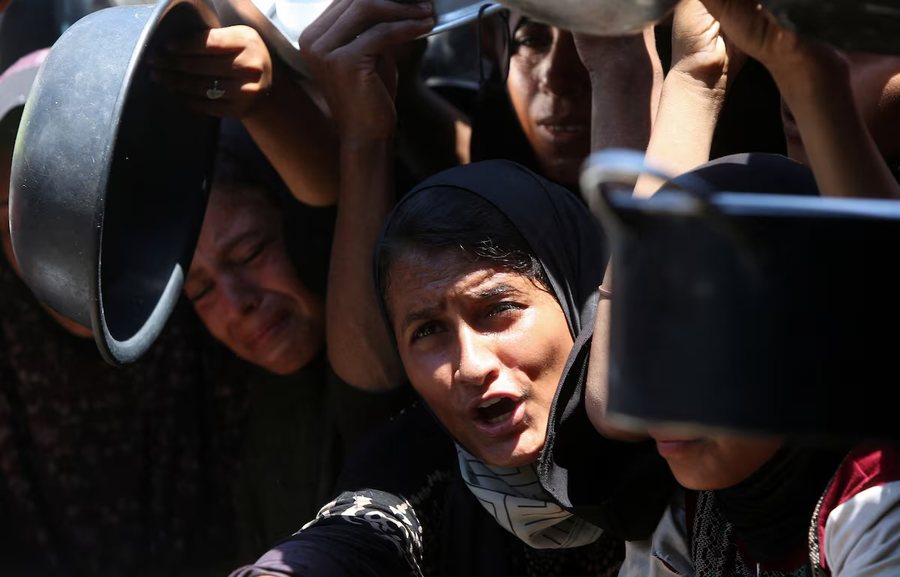
GHF denied there were any incidents at or near its outlets on Monday. Reuters was unable to verify the exact location of the incidents.
Bilal Thari, 40, was among those present at Al Shifa hospital in Gaza City to receive the body of a relative killed by Israeli fire while trying to get food, according to health authorities.
"Every person who goes there either returns with a sack of flour or returns on a stretcher as a martyr. No one returns unharmed," Thari said.
At least 13 people were killed on Sunday while waiting for UN aid trucks at the Zikim border crossing, in the north of the territory, according to health authorities.
Due to border restrictions and the high number of victims, the hospital no longer had the traditional white shrouds for Islamic burials - some bodies were wrapped in ordinary blankets, relatives said.
"We don't want war, we want peace, we want this misery to end. We are on the streets, hungry, in dire straits. Women are also on the streets, we no longer have anything that allows us to live like ordinary people. This is not life," said Thari.
Israel did not immediately comment on Sunday's incident. The Israeli military told Reuters it had not fired near an aid center in the southern territory on Monday, without providing further details.
The Israeli government blames Hamas for the suffering in the territory and says it is taking steps to allow more humanitarian aid, including temporary ceasefires in some areas, airlifts and the designation of protected routes for aid convoys.
Israeli Prime Minister Benjamin Netanyahu said on Monday that he would convene his security cabinet this week to discuss how the military should proceed to meet the government's objectives - defeating Hamas and freeing the hostages.
Death from starvation
Meanwhile, five more people have died from hunger or malnutrition in the past 24 hours, according to the territory's Ministry of Health. This brings to 180 the number of deaths from hunger since the start of the war - including 93 children.
UN agencies emphasize that air aid is not enough and that Israel must allow much more ground aid and speed up access to it.
COGAT, the Israeli military agency coordinating aid, stated that over 23,000 tons of humanitarian aid have been brought in over the past week via 1,200 trucks, but hundreds have yet to be distributed by the UN or international organizations.
The Israeli military later announced that 120 food packages were airdropped into the territory from six different countries, in cooperation with COGAT.
According to local authorities, more than 600 aid trucks have entered since restrictions were eased in late July. But witnesses and Hamas sources said many of them were looted by desperate displaced people and armed groups.
Palestinian representatives and UN officials estimate that about 600 aid trucks per day are needed to cover needs – as many as were allowed before the outbreak of the war.
The war began on October 7, 2023, when Hamas killed 1,200 people and took 251 hostages in an attack on southern Israel, according to Israeli figures. In response, the Israeli offensive has killed more than 60,000 people, according to local health authorities, which do not distinguish between civilians and combatants.
According to Israel, there are currently 50 hostages remaining in the territory, of whom only 20 are believed to be still alive./Reuters


